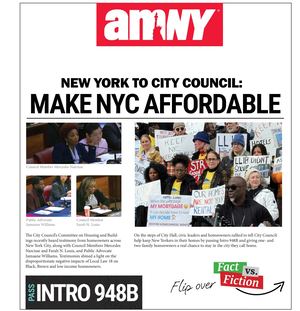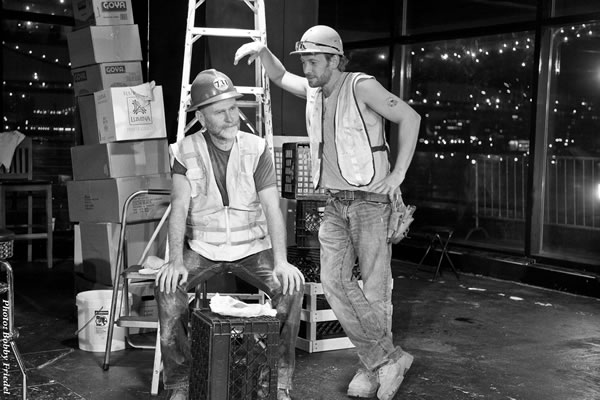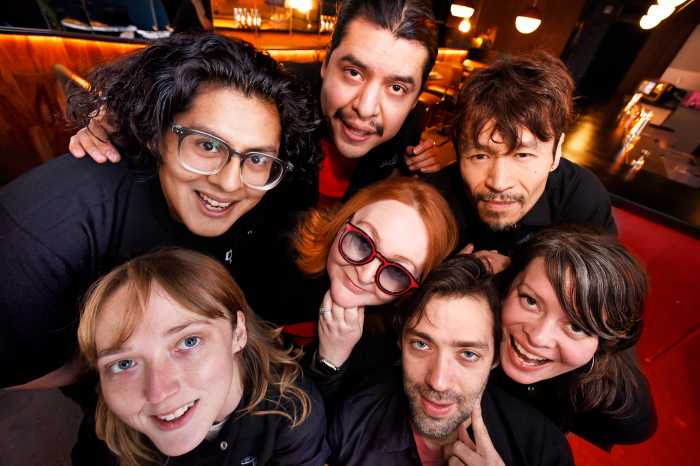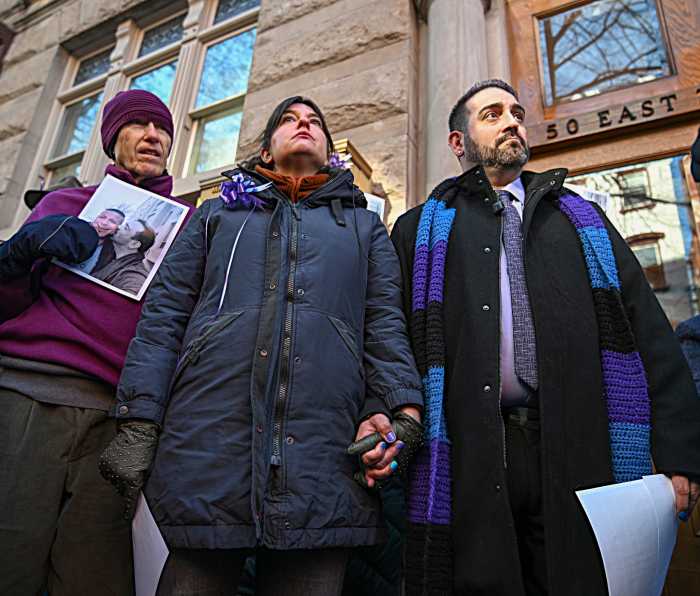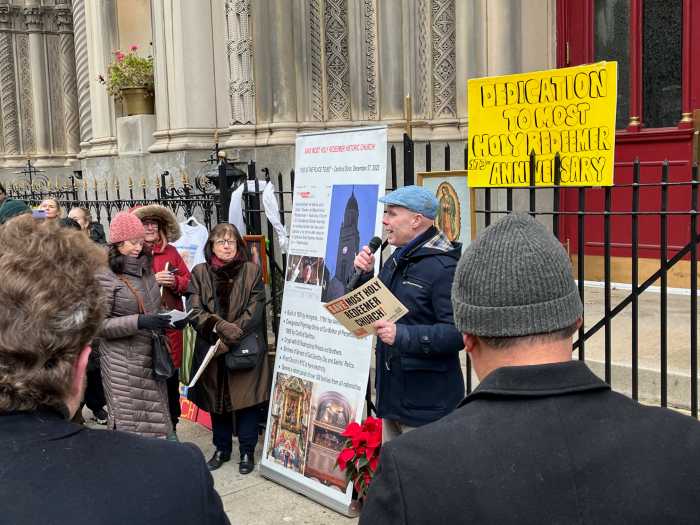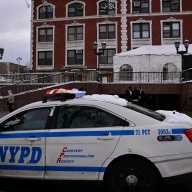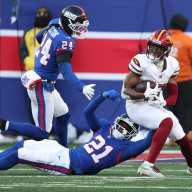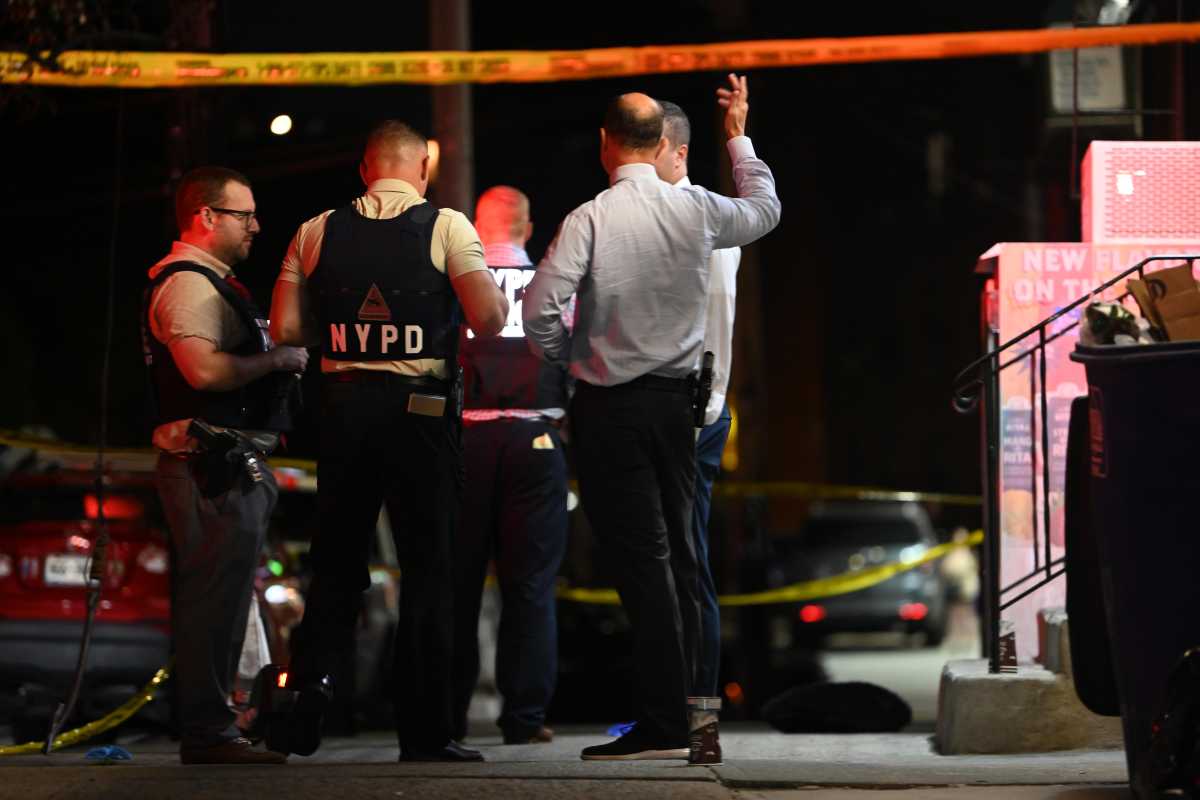BY ALINE REYNOLDS
Exploring the aftermath, without excessive immersion in sorrow
Scores of 9/11-themed plays have been written in the decade since the attacks, several of which have been performed in New York in recent weeks. Stephen Girasuolo’s “Orange Alert” — while not exceptional — is captivating and well worth seeing.
The two-act play provides candid snapshots of construction workers and restaurant employees in and around Ground Zero. Unlike many other 9/11 plays, “Orange Alert” portrays the aftermath without immersing the audience in unrelieved sadness (many of the scenes are, in fact, comical).
The play sheds light on the restoration of the World Trade Center while highlighting tensions between people of different social classes that partook in the rebuilding of Lower Manhattan. Bobby, a restaurant delivery boy, is mesmerized by the interior of a new area hotel — telling co-worker Layla it made him feel as if he was “in another world.” Layla, in turn, refers to the tourists as “animals,” and mocks their visit to the “big hole” at Ground Zero.
While he does succeed in offering the perspectives of construction workers, cooks and delivery boys with wit and realism, Girasuolo doesn’t introduce us to a single financial trader or tourist. It’s strange not to have introduced April’s husband — a former trader at the Twin Towers who like W.T.C. construction worker Al, gets laid off from his job and takes a stab at suicide. Having not taken this road, the playwright misses his chance to make a more unique contribution to the post-9/11 discussion by exploring how the event, and its ensuing economic downturn, created a bond between people of different social strata.
The play does, however, provide tantalizing glimpses into class distinctions. As construction workers Al and Pete marvel at the view from the 27th floor of Tower One, they point out that they’ll never be able to enjoy their own creation. “I’m going to miss this floor,” Al tells his co-worker, Pete — who replies, “Probably someone here will be making a lot of money in this room.”
Peppered with chilling allusions to 9/11, the second act takes some shocking turns. Girasuolo effectively connects the characters toward the end, including those who were previously strangers. As Al, distraught over being fired when he had anticipated a promotion, presumably jumps out of the 27th floor of Tower One, Layla — who witnesses his suicide — relives the horror of watching office workers leap to their deaths from the Twin Towers on September 11, 2001. She and Bobby then share vivid flashbacks of where they were that morning, only to discover that they were trapped in the same bank.
